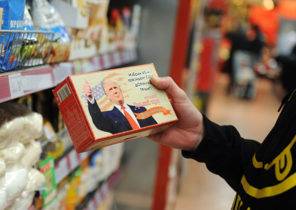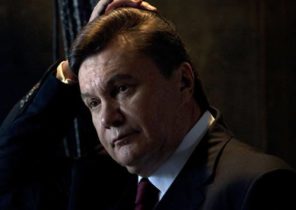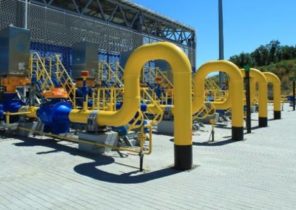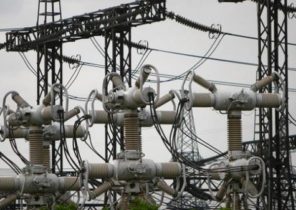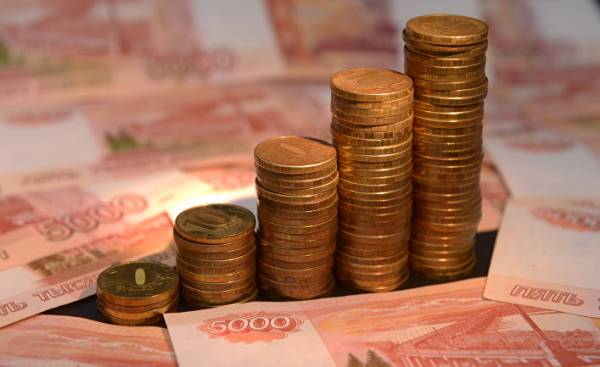
The US is preparing to impose new sanctions against Russia, it is expected that the lower house of the us Congress will vote for the bill on Tuesday, July 25. Earlier the document has already been approved by the Senate. It’s unclear whether the sign of the decision of the President of the United States Donald trump, but a spokesman for the White house Sarah Sanders said that he supports new sanctions package.
The document stipulates in particular a reduction of the maximum term market funding under sanctions Russian banks and 14 days (now 90 days), and oil and gas companies up to 30 days. Sanctions, among other things, directed against the construction of Russian gas pipeline “Nord stream-2” which fuel should be supplied to Germany under the Baltic sea bypassing Ukraine and Poland. In Brussels disliked the idea, advising US to pre-consult with the European Union on such “sensitive issues”. The sensitivity of the restrictions on the “Nord stream-2” is associated primarily with the fact that in the construction of the pipeline is interested in Germany, whereas some other EU countries, including Poland and Slovakia, should be happy about this turn. However, in response to U.S. sanctions the EU can take countermeasures.
The European Union may impose new sanctions against Russia because of the scandal surrounding the supply of gas turbines for Siemens in the occupied Crimea.
So far the EU and U.S. adopted sanctions against Russia almost simultaneously. This is joined by other countries, including Ukraine. Today, under Western sanctions are about 150 people and 40 companies. Ukrainian affect nearly 700 people and 300 companies, including subsidiaries of Russian state-owned banks.
Russia is not in debt left and introduced counter-sanctions, banning a number of Western politicians from entering its territory. However, the most famous was the food embargo of the relevant products to the USA, European and other States — again, including Ukraine.
Anti-Russian sanctions in effect
Sanctions contrary to the statements of Russian politicians has an impact on the Russian economy, and this effect is quite negative. The crisis in the economy of the Russian Federation confirmed by the macroeconomic indicators. GDP growth in 2014 was only 0.7% in the original forecast of 2.5%. In 2015, the Russian economy collapsed from 3%. In 2016, GDP continued to fall by 0.2%.
Sanctions also triggered a huge outflow of capital from Russia in 2014 it amounted to $153 billion in 2015 and $57.5 billion in 2016 and $15.4 billion “the Sanctions regime makes the international investment capital is very nervous. In the case of hard sanctions is the flight of domestic capital and the enormous outflow of foreign capital,” — said in comments “Apostrophe” Russian financier Slava Rabinovich.
Because of the sanctions, declining economic cooperation of Russia with other countries. So, in 2015 the trade turnover between Russia and the EU have fallen by 40%. Cooperation with Ukraine is also on the decline for three years “trade wars” the trade turnover between the countries fell by five times.
Thus, according to the Ministry of economic development of the Russian Federation in 2014-2015 due to the food counter of food prices in Russia grew by almost a third (31.6 percent). Particularly noticeable was the jump in prices in 2015 (Russia imposed food embargo in August 2014).
In General, the sanctions have undermined the financial solvency of the Russians. In particular, this is due to the collapse of the Russian ruble. 6 December 2014 entered into Russian history as “black Tuesday” when the ruble at the auction fell from around 60 rubles per dollar to 80 rubles to the dollar. Despite the fact that the Russian currency played a few later this fall, its course and could not return to the level of slightly over 30 rubles per dollar, which was a year earlier, a Bloomberg called the Russian ruble is the worst currency of 2014. Today for one us dollar give about 60 Russian rubles.
Because of the decline in real incomes of the Russians were less likely to travel abroad. According to official data, the number of tourists from Russia in 2015 decreased by almost 20%. In 2016, he also fell, but slower by 8%.
However, traveling, especially abroad, are not a basic human need. But with the latest in Russia a big problem. According to research by the Russian Center of economic and political reforms in Russia families are spending on the Essentials 70-100% of their budget. Thus, according to the Institute of social forecasting of the Ranepa, about one-third of all Russians were at risk of poverty.
Sanctions hit sectors
One of the consequences of the sanctions, the impossibility of using the RF-needed technologies. Such limitations experienced by all spheres, but they are especially notable for the military-industrial complex. The Russian defense industry is heavily dependent on components which were previously purchased from Ukrainian manufacturers. For aviation, for example, are the products of the company “Motor Sich” (Zaporozhye), which produces engines for aircraft and helicopters. In the space sector of the Russian Federation for many years was tied to the launch vehicles and missile systems, developed by KB Yuzhnoe (Dnipro). Due to the cessation of supplies of Ukrainian gas-turbine units of the enterprise “Zorya-mashproyekt” (Nikolaev), Russia is unable to complete the construction of a number of ships for their Navy. As a result, the ships will be sold to India, which will independently purchase the necessary propulsion.
In order to circumvent sanctions, the Russian leadership often goes to the deception, as it happened with the scandal around Siemens turbines in the Crimea.
Another important effect of the sanctions restrict access of Russian business to the so-called “cheap” money in Western banks. If in 2013 Russia has attracted in the market of Eurobonds of $46.4 billion in 2015, this figure has decreased almost 10 times — to about $5 billion According to the Glory Rabinovich, in Russia there is a catastrophic rise in what financiers call the WACC — weighted average cost of capital (weighted average cost of capital). “The imposition of sanctions, fleeing investment capital, with increasing risk weighted average cost of capital multiples is increasing, therefore, companies becoming increasingly difficult to remain profitable. What we see now in Russia is the catastrophic decline of profitability, a catastrophic decline in the share of profitable companies,” — said the expert.
What’s next
Despite the obvious effect of the sanctions on the Russian economy with a minus sign, the figures indicate that in recent years their influence has lessened. This suggests that Russia has been able to adapt to the sanctions, a Russian economist Dmitry Nekrasov. “Especially in the first phase in 2014, when there was a capital outflow on the order of $150-160 billion, the imposition of sanctions has greatly affected the Russian economy. In the medium term, the impact of sanctions is still there, but to talk about some terrible things, however. It is clear that this hinders economic growth, but in General, and the outflow of capital has severely declined and many companies have learned to circumvent these sanctions,” — said the expert comments, “Apostrophe”, adding that in the long term “sanctions will severely undermine opportunities for economic growth in Russia.”
If the United States will adopt a new sanctions package, the project of the pipeline “Nord stream-2” will be in jeopardy — serious companies just do not dare to participate in it.
In addition, the new sanctions will complicate the already tight borrowing conditions for Russian companies and banks. And this will contribute to the further deterioration of the economic situation in Russia.
Slava Rabinovich predicts that the preservation of the sanctions regime would be a huge blow to the Russian banking system. According to him, several systemically important banks lent considerable part of the Russian economy and Sberbank has loans of about half the entire economy of the Russian Federation.
“If the entire Russian economy begins to collapse in the form of mass bankruptcies of companies, this will be followed by the collapse of the banking system,” — said the expert. According to him, attempts to save the core banks will trigger the need to begin emission, which “will lead to the collapse of the ruble, which will lead in turn to the termination date of the ruble as a unit of account in international trade that will lead to the collapse of imports.”
“What we are seeing, it is nothing like the footage slow motion train wreck. They can only slow down or speed up, but the train wreck will happen exactly,” concluded Rabinowitz.



